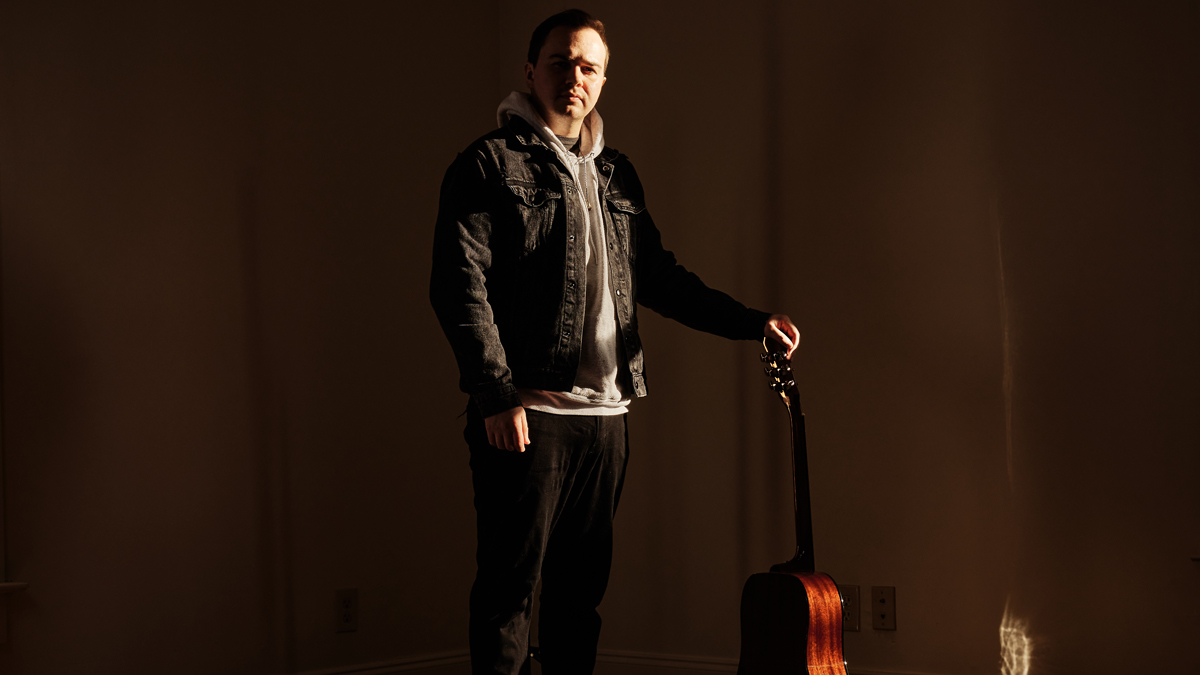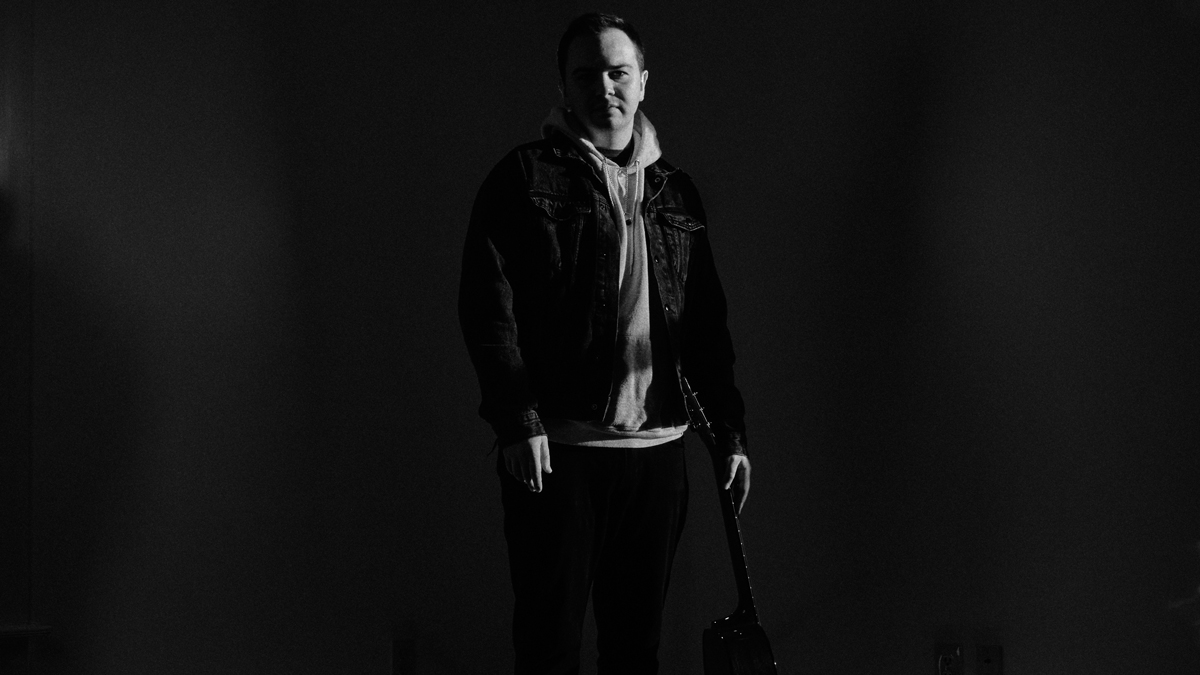“Dad showed me three chords and then he was like, ‘There’s a million songs in those three chords, so knock yourself out.’ He wanted me to find my own connection”: Tommy Prine shares how music helped him cope with the loss of his father
The son of late country-folk legend John Prine never intended to be a singer-songwriter. But playing guitar and writing was instrumental in processing his grief. He shares the lessons his father taught him and how they set him up for a life in music

All the latest guitar news, interviews, lessons, reviews, deals and more, direct to your inbox!
You are now subscribed
Your newsletter sign-up was successful
Tommy Prine never envisioned a career in music, where the eyes and ears of the world would be upon him. He also never imagined a time when he would be tasked with discussing his innermost feelings with strangers during round after round of interviews.
His debut album, This Far South, changed all of that. Since its June release, Prine has been center stage in the media, skillfully navigating probing questions about his life, his lyrics, and of course the loss of his beloved father, John Prine.
“I've always found it easier to write about all the heavy emotions than to talk about them,” he says. “Not that I won't open up to people I love; I just have to write about it first. I have to dilute it down into a more tangible topic to actually talk about afterwards, because grief and all the things that come with it – it's overwhelming. It's too much to think about. It's too much to talk about.”
“Grief and all the things that come with it.” Could you talk about those things? As a society, we often fail at grief and grief support. It’s “The funeral was yesterday. Why are you still crying?”
“There’s a lot that comes with it, because in the physical world, there's the fallout of losing a person, like the funeral, and sometimes it feels like forced closure. Also all the other people that loved this person, or knew how close you were with this person, and everyone's reaching out in varying degrees. People handle it in different ways, and some people might not handle it in a way you like, so that's everything that comes in the physical realm of grief.
Grief can make you feel more connected to people that you know or don't know, and more connected on this planet, because I think grief is the web between all of us
“Then there's the emotional aspect, where you don't know how it's going to affect you. For instance, I had never dealt with anxiety beyond the normal human emotion. I never dealt with it in terms of a mental health struggle. After my father died, I started getting panic attacks. I never had that before. It wasn't like I was thinking about him and had a panic attack. I would just have them. They were infrequent, but they happened. I think that's another example of it.
“Grief manifests differently in each person. There is a wide array of outcomes that can happen, and you never know what you're going to get. If you really want to get down to it, there’s the spiritual fallout as well. When I lost my best friend [in 2017], I had a hard time believing in purpose or destiny or the reason why we're all here. I fell into the big cosmic joke of it.
All the latest guitar news, interviews, lessons, reviews, deals and more, direct to your inbox!
“But with all of those elements that happen through grief, there is a path to feeling grateful, even if it's a horrible thing in your life, because through all of these things that you deal with after losing somebody, or anything that would cause someone to grieve, depending on how you handle it, it can turn you into a better person. It can turn you into the person that you need to be. It can make you feel more connected to people that you know or don't know, and more connected on this planet, because I think grief is the web between all of us.”
What did you learn from your dad, not only about songwriting and guitar, but also about life? How did he help guide you into the person you’ve become?
“About guitar, very little! He showed me three chords and then he was like, ‘There's a million songs in those three chords, so knock yourself out.’ I took to it by myself, and I'm grateful that he didn't make me sit down and play with him or anything like that. He wanted me to find my own connection, and I did. I think that's a beautiful thing.
“Songwriting – he had an interesting way of giving advice. It was cryptic without him meaning to be cryptic, meaning I would figure out what he meant several years after he would impart his advice.
“The one thing I remember most is we were at Pancake Pantry eating breakfast and I asked him, ‘How do you write a song?’ They had a kids’ menu, and he got some of the crayons that were on the table, flipped the menu over, drew a bunch of green stuff on the bottom, a blue stick figure, and a yellow sun in the corner. He said, ‘That's how I write a song.’ I was like, ‘What do you mean?’ He said, ‘If you can get an image across with very few things, that's how I write a song.’ It took me years to really get it when I started writing my own songs. Now that it hits home, it makes a lot of sense.
“One thing he taught me, just as a man, was he always said, ‘Listen to your gut and listen to your heart, because most of the time they're right.’ I know it may sound simple, but as life goes on and you get thrown new situations all the time, things you've never done, and wading in a new space, it's really important to listen to yourself. It's a skill.”

As you mentioned earlier, it's easier to write about your emotions than to talk about them. Yet here you are, day after day, talking about them during interviews.
“It's okay. Especially with This Far South, I feel like I've caught everybody up with my life. I've combed over everything enough that I can talk about it. It's a lot harder with in-person stuff, like talking to fans, because I take on people's emotions and stories. I love that they share with me, and I hope they keep sharing with me, because an important part of what I do is making and feeling that connection.
“Sometimes that's hard to compartmentalize, because at a certain point you’ve got to keep going and go to the next show, but I'm thinking about this sweet lady who told me she had been going through chemo and listened to my album, and I don't know how not to cry for the next two days thinking about that.”
Where are you now in your grief journey? We’re often told that we never get over it; we just learn to live with it… or try to.
“I think that’s it. I'm always going to miss my dad. I'm always going to miss my friend. But the only way that any of us can move forward is finding a way to be grateful, and that’s one of the hardest things to do because it doesn't feel good.
“You want to feel grateful for the good things in life, and all the blessings you have, and the great people you meet, but you never think about trying to find a bright spot in a really dark moment, because at those moments, the darkness is all-encompassing. There aren’t a lot of signs pointing to how to find happiness in that.
“I try to honor my friend and my dad through life and experiencing my own journey, and being really grateful that I knew them.”
How does music help?
Listening to music, playing piano or guitar, and songwriting, especially, make it easier to manage. It’s a good way to put myself back in my body and out of my mind
“Listening to music, playing piano or guitar, and songwriting, especially, make it easier to manage. It’s a good way to put myself back in my body and out of my mind. It forces me to slow down and then realize that 30 minutes, an hour, two hours have gone by without me thinking about anything. I've just been focusing on music.”
What do you wish people who are not bereaved understood about those who are deep in grief?
“There's a lot of ways to handle grief, whether it's happening to you or to other people. I don't want to be the gatekeeper of grief, but for me, the best thing someone said was from one of my friends who lost their father when they were young. He texted me, ‘I love you. This sucks.’ And that's it.
“That was the most validating thing anyone has ever said to me in a moment like that, because I know people mean well, but I just wanted to hear someone say, ‘This is horrible,’ and not anything after that. I didn’t want a ‘but …’ I just wanted them to acknowledge that this is a totally bad thing.”
- This Far South is out now via Thirty Tigers.
Resources
Alison Richter is a seasoned journalist who interviews musicians, producers, engineers, and other industry professionals, and covers mental health issues for GuitarWorld.com. Writing credits include a wide range of publications, including GuitarWorld.com, MusicRadar.com, Bass Player, TNAG Connoisseur, Reverb, Music Industry News, Acoustic, Drummer, Guitar.com, Gearphoria, She Shreds, Guitar Girl, and Collectible Guitar.
